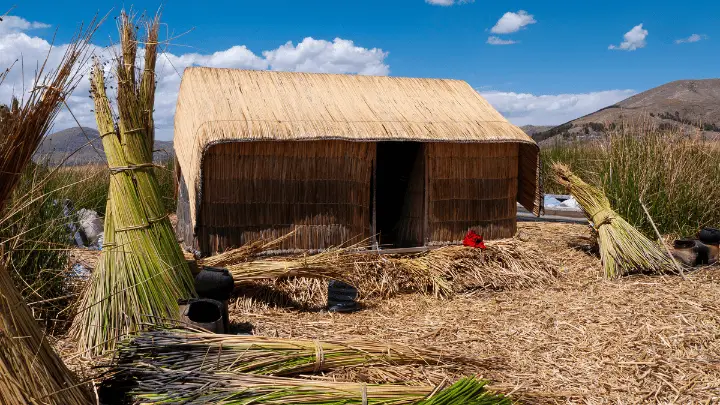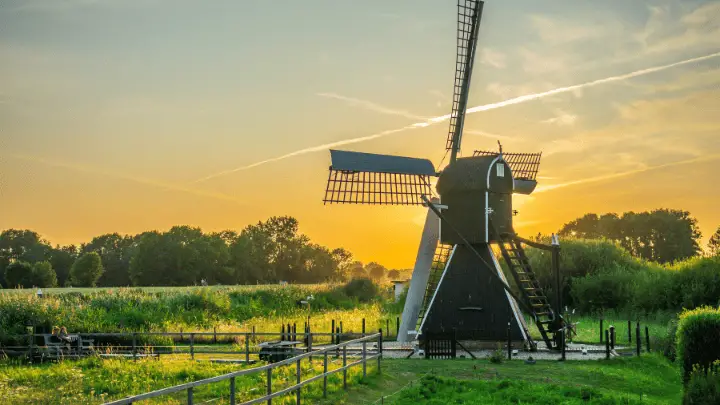Regarding sustainable living, it’s often easy to assume that urban areas have the upper hand. With so many resources available, it’s no surprise that cities are at the forefront of green projects. But what about sustainable practices for rural areas?
Just because a community is dispersed doesn’t mean it can’t be viable. Rural communities may be in an even better position to promote sustainable practices. Rural regions have a unique chance to set the way for a more ecologically friendly future.
This is because they have access to natural resources, a close-knit society, and a closer relationship to the land. From waste management to technology innovation, there’s plenty to discover about making rural communities greener.
So, let’s get started and look into the sustainable practices that might survive in rural areas.
Understanding Rural Sustainability

What does sustainability mean for rural areas?
In rural areas, sustainability is a crucial concept. It revolves around catering to the community’s immediate needs while ensuring that future generations have the resources to meet them.
The concept encompasses various dimensions that are specific to the rural context. These dimensions include social, economic, and environmental aspects such as agricultural practices, land use, and natural resource management.
It is essential to balance these dimensions to ensure the community can prosper without harming the environment or depleting resources.
Ultimately, sustainable development in rural areas requires a collaborative effort from all stakeholders to achieve long-term prosperity for both the present and future generations.
The unique characteristics of rural communities
Rural areas are characterized by many distinct features that distinguish them from urban centers. Among these are lower population density, a greater emphasis on agriculture, limited access to infrastructure and services, and close-knit communities.
These features have important implications for sustainability efforts in rural contexts. This is because they require tailored strategies considering these communities’ specific needs and challenges.
By understanding these unique characteristics, policymakers and other stakeholders can work together to develop more effective sustainability initiatives. These initiatives should promote economic development, social well-being, and environmental stewardship in rural areas.
Why rural sustainability matters globally
Rural sustainability is not just a local concern but a global one. Rural areas are critical for food production, resource management, and biodiversity conservation.
Global sustainability goals can only be achieved by addressing rural communities’ unique challenges. The long-term success of sustainable development initiatives depends on understanding and supporting the needs of these areas.
Challenges in Rural Sustainability
People living in rural areas often encounter difficulties when adopting sustainable practices. Farmers in some regions face challenges when it comes to adopting sustainable practices.
For instance, they may need access to modern technology, more financial resources, or rely on traditional methods of agriculture. Additionally, they may need access to information on sustainable practices, and there may be inadequate government policies and incentives.
Climate change and unpredictable weather patterns can also pose a challenge. Furthermore, limited market access and inadequate transportation infrastructure can make it difficult to sell their products. Finally, socio-cultural barriers can also hinder the adoption of sustainable practices.
Addressing these challenges is critical for the promotion of sustainable practices in rural areas and for the achievement of a sustainable future.
Overcoming These Resistance and Challenges

Communities in rural areas face challenges when adopting sustainable practices, but it’s crucial for a greener future. Here’s how they can pave the way:
- Access to technology and resources: To enhance technological development, it is important to establish tech hubs, provide affordable financing, and encourage collaboration for resource sharing and use of renewable energy sources.
- Financial resources: Assist in granting access to grants, offer personalized microfinance options, and promote income diversification.
- Traditional farming methods: Training and education programs can help farmers transition to sustainable agricultural practices. Sharing knowledge and collaborating through cooperatives and mentorship programs can also be helpful.
- Access to information: Establish community centers, utilize mobile technology and radio, and seek collaboration with NGOs to transfer knowledge.
- Government policies and incentives: Encouraging sustainability initiatives in rural areas through policies, tax incentives, and government-sponsored training programs can create a favorable environment for success.
- Climate change and weather patterns: Encourage farming practices that are resilient to climate change, promote the cultivation of diverse crops, and adopt technologies designed to be climate-smart.
- Market access and transportation: To enhance the infrastructure in rural areas, it’s important to focus on developing local markets and establishing partnerships that ensure reliable transportation.
- Socio-cultural barriers: To bring about change, it’s important to raise awareness, engage community leaders, and highlight local successes as examples to inspire others.
By embracing these strategies, rural communities can surmount challenges, making sustainable living a dream and a thriving reality. Together, these steps empower rural areas to shape a future where sustainability is not just a choice but a way of life.
A Few Sustainable Practices for Rural Areas

1. Local seed saving
Local seed saving is an important sustainable practice for rural areas. It’s all about collecting and storing seeds from crops grown in that region so those crops can thrive for many years.
When local farmers save seeds, they can keep the wonderful biodiversity of plant life in their area intact. This means they can continue to grow healthy and strong crops perfectly suited to their region’s climate and soil conditions.
Plus, it’s a smart economic move, since it saves farmers from purchasing seeds elsewhere. By prioritizing seed saving, farmers can ensure that local communities have reliable access to food and are better equipped to handle the challenges of climate change.
2. Permaculture design and organic farming
Permaculture design and organic farming are great sustainable practices for rural areas. These practices aim to create self-sustaining ecosystems by promoting healthy soil, conserving water, and utilizing natural resources.
By utilizing natural farming techniques and avoiding harmful chemicals, farmers can grow nutritious crops while improving the environment’s overall health.
An excellent example is the Holistic Land Management program implemented in Zimbabwe, which promotes sustainable agriculture while restoring degraded land.
These practices also promote community involvement, sharing knowledge and resources, and the preservation of local traditions and cultures.
3. Educational workshops
One of the most effective sustainable practices in rural areas is educational workshops. These workshops provide an avenue for knowledge and skill acquisition, leading to long-term benefits.
In agriculture, for instance, workshops can teach farmers innovative and environmentally friendly methods to boost crop yields while minimizing waste and resource use. It also empowers people to make informed decisions about the environment and take actions that benefit their local community.
A workshop on renewable energy was organized by a nonprofit organization in rural Kenya. It resulted in installing solar panels in the village, reducing carbon emissions and lowering energy costs for residents.
We promote sustainable development and resilience in rural communities by supporting educational workshops.
4. Rural waste management
Managing waste in rural areas is important for protecting our environment and keeping our surroundings clean. Without proper infrastructure, it can lead to health hazards and environmental problems.
However, we can make a positive impact with practices like recycling, composting, and garbage disposal. The EcoVillage project in New York is a great example. Residents can engage in eco-friendly practices like composting, using renewable energy, and maintaining green spaces.
These practices are essential for sustainable living in rural areas.
5. Eco-tourism initiatives
Eco-tourism can promote sustainable practices in rural areas. This provides revenue for local communities and promotes awareness about conservation and the need for natural resource preservation.
These eco-tourism destinations in rural areas allow residents to promote their distinct culture and customs, which is especially important in locations where resources are scarce.
Ghandruk is a Nepalese town that has experienced an increase in eco-tourism. This is largely due to its location along the Annapurna path and efforts to preserve the local way of life and environment.
FAQs
How can rural areas benefit from sustainable practices?
Sustainable practices in rural areas can increase agricultural yields, decrease energy costs, and promote a healthier environment for residents.
Is organic farming more challenging in rural areas?
Many farmers have found that practicing organic farming in rural areas can greatly utilize the space and resources already available. With careful management, the results can be highly successful.
Can small-scale farmers implement sustainable practices?
Yes. Farmers who operate on a smaller scale can implement sustainable techniques such as crop rotation and organic farming to enhance their operations.
How can rural communities finance renewable energy projects?
You can get funding if you live in a rural area and want to pursue renewable energy projects. You can explore government grants and subsidies or partner with renewable energy companies. These resources can give you the financial support you need to make your sustainable energy goals happen.
What role do local governments play in promoting sustainability in rural areas?
Local governments can offer incentives, regulations, and infrastructure to promote sustainable practices in rural areas.
Rural Areas Can Also Be Sustainable
One thing is obvious as we draw close to this article: rural areas can also be sustainably developed. Sustainable practices in rural areas can help conserve the environment, maintain natural resources, and enhance people’s livelihoods.
Rural communities have a fantastic opportunity to pave the path for a greener, healthier future. From sustainable energy sources like solar panels to environmentally friendly farming methods like permaculture.
By investing in sustainable practices, rural areas can become self-sufficient and vibrant centers of innovation and creativity. No matter if you’re a farmer, an environmental activist, or just concerned about the state of the world, now’s the time to take action.
We can all work together to build a more resilient, egalitarian, and prosperous future for everyone, including our planet.
You can also learn more about the impact of natural resource extraction on local communities.
Thanks for reading.
